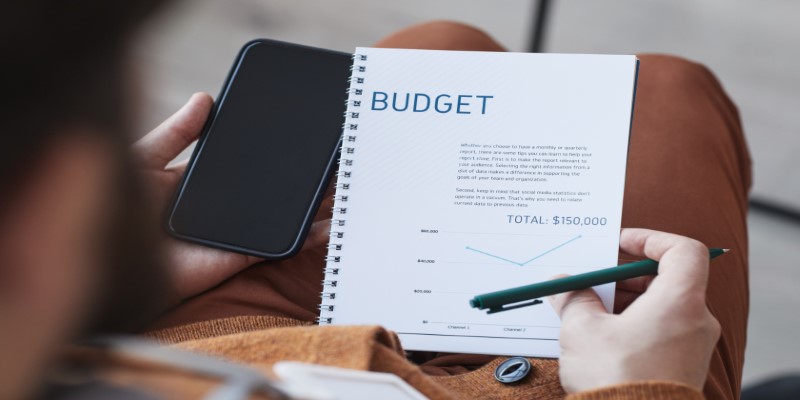Mastering Your Money: Taming Emotional Spending Habits
Dec 01, 2023 By Susan Kelly
Do you ever find yourself impulsively buying that designer handbag or the latest tech gadget, only to regret it later when you check your bank account? You're not alone. Many of us succumb to emotional spending from time to time, and it can seriously impact our financial well-being.
But fear not; there are ways to keep emotional spending in check and regain control of your finances. In this article, we will delve into the concept of emotional spending, the reasons behind it, and, most crucially, discover effective ways to conquer it and uphold financial discipline.
Understanding Emotional Spending
Emotional spending, as the name suggests, is the act of making purchases based on your emotions rather than necessity. It's when you buy that expensive dress because you had a bad day at work or when you purchase the latest smartphone because you want to feel trendy and successful. While occasional indulgence is perfectly normal, habitual emotional spending can lead to financial trouble.
The Dangers of Emotional Spending
Before we dive into strategies for curbing emotional spending, let's take a closer look at why it can be harmful:
Debt Accumulation: One of the most significant dangers of emotional spending is that it can lead to mounting debt. Using credit cards or taking out loans to fund impulsive purchases can quickly spiral out of control.
Strained Relationships: Constant overspending can strain relationships, especially if your financial irresponsibility affects your family's financial stability. Arguments about money are a common source of stress in relationships.
Stunted Savings: Emotional spending often means that money isn't being allocated toward savings or investments. This could impede your progress towards long-term financial objectives, such as purchasing a house or securing a comfortable retirement.
Regret and Guilt: After the initial thrill of the purchase fades, you may experience feelings of regret and guilt. This emotional toll can be just as damaging as the financial impact.
Strategies to Keep Emotional Spending in Check
Now that we understand the pitfalls of emotional spending let's explore some practical strategies to keep it in check.
Create a Budget

Budgeting is your first line of defense against emotional spending. It provides a clear roadmap for your finances, allowing you to see where your money is going and how much you can afford to spend on non-essentials. Here's how to get started:
Track Your Expenses: Begin by recording all your expenses for a month. This includes fixed costs like rent or mortgage, utilities, groceries, and discretionary spending like dining out and entertainment.
Set Spending Limits: Based on your income and necessary expenses, set limits for different spending categories. Be sure to allocate a portion for discretionary spending.
Stick to Your Budget: The most crucial step is to stick to your budget. This requires discipline and the willingness to say no to impulsive purchases when you've reached your spending limit for a category.
Identify Your Triggers
Understanding the emotions and situations that trigger your emotional spending is key to overcoming it. Take some time to reflect on your spending habits and identify patterns. Ask yourself:
When Do I Spend Emotionally? Is it when you're stressed, bored, sad, or celebrating? Recognizing the emotional triggers can help you prepare for them.
Where Do I Spend Emotionally? Do you tend to shop online late at night or at the mall with friends? Knowing your spending environment can help you avoid temptations.
Practice Delayed Gratification
One effective strategy to combat emotional spending is to practice delayed gratification. When you feel the urge to make an impulsive purchase, force yourself to wait. Give it a day or a week, depending on the item's cost. More often than not, you'll find that your desire to buy it has diminished.
Create a Shopping List
Prior to going to the store or surfing the web, compile a shopping list comprising only the items you truly require. Stick to your list and avoid veering off course by adding unnecessary items to your cart.

Unsubscribe and Unfollow
In today's digital age, we're bombarded with advertisements and tempting offers on social media, email, and websites. Take control by unsubscribing from mailing lists and unfollowing accounts that trigger your desire to spend.
Find Alternative Outlets
Instead of turning to shopping when you're feeling emotional, find healthier outlets for your emotions. Consider activities like exercising, meditating, journaling, or talking to a friend. These alternatives can help you manage your feelings without resorting to spending.
Set Financial Goals
Setting financial goals can provide you with a sense of purpose and motivation to resist emotional spending. Setting clear goals, whether they involve saving for a dream vacation, eliminating debt, or establishing an emergency fund, can help you maintain your focus on the broader objectives.
Enlist an Accountability Partner
Share your financial goals and the challenge of curbing emotional spending with a trusted friend or family member. They can provide support encouragement, and help keep you on track.
Cash Only
Consider using cash for discretionary spending instead of credit cards. When you see physical money leaving your wallet, it can make you more aware of your spending and encourage frugality.
Seek Professional Help
If emotional spending is severely impacting your financial well-being and you find it challenging to control, don't hesitate to seek help from a financial counselor or therapist. They can provide personalized strategies and guidance to address the underlying emotional triggers.
Conclusion
Emotional spending can be a challenging habit to break, but with determination and the right strategies, you can regain control of your finances and achieve greater financial discipline. Remember to create a budget, identify your triggers, practice delayed gratification, and seek healthier outlets for your emotions.
By taking these steps, you'll be well on your way to mastering your money and achieving your financial goals. So, the next time you're tempted to make an impulsive purchase, take a deep breath and ask yourself if it's worth sacrificing your financial well-being.
Top of Form








